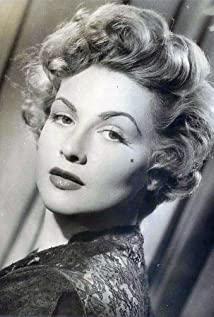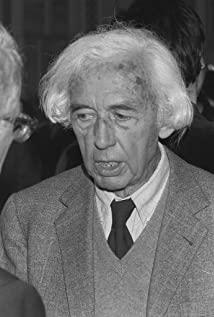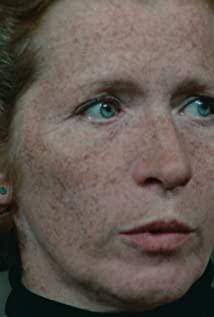There is a rupture between the stomach and the wine : at the beginning of the film, the young priest talked about his poor health and the resulting poor diet that only eats wine and bread. Later, he was also due to stomach cancer. And dead. But if we take this out of consideration, the whole film will be split into two unrelated stories: one is a young priest who came to his rural parish. After numerous setbacks, he still He struggled painfully to stick to his beliefs and eventually died; the other was a priest who was already sick and died of illness after a period of unsatisfactory work.
The former is a touching story, and the latter is unremarkable, but because the film never tells us that there is an inevitable causal connection between the priest’s personal efforts and his death (the priest’s simple diet was chosen from the beginning and declared It was determined by stomach problems, really a strange claim?), so death for his work and beliefs was an external accident. However, in the overall viewing of the film, we feel that death lies in his spiritual journey, and finally proves his belief and hard work.
Why is this?
Wine is also an intriguing question. At first the wine seemed to be just the liquid used to soak the bread, but if we consider that the priest’s two important allies (or opponents?), the priest and the doctor, have seriously discussed the issue of wine with him, then we shouldn’t Ignore its importance. At the beginning, the priest declared that wine can refresh his spirit. There seems to be nothing wrong with it. Even the priest said that drinking a little wine is nothing. However, the reason why the priest objected to the priest’s drinking was that the latter ignored the prayer to God because of his dependence on alcohol. The doctor’s words were even more strange. He declared that the priest was hopeless because of the alcohol he was born with (there can be two One kind of explanation, one kind is medical, it may mean that the priest has some kind of genetic disease, but this cannot be proved elsewhere in the film; the other is symbolic, it first reminds us of the Christian theory of original sin , But the doctor himself is not religious, which makes his statement an ironic effect).
Wine connects the priest's physical illness and spiritual pursuit. It marks a way of life chosen by the priest. It is this way that brings the priest into the relationship with the villagers and others.
Precocious little girl
If the priest’s frustration mainly comes from the villagers’ incomprehension and hostility, it is strange that the film shows so little of the relationship between the two. In the beginning of the film, we briefly showed us the conflict between a stingy old villager and the priest. After that, the villager problem was only mentioned indirectly. It constitutes an important source of the priest's distress, but it has not been directly unfolded.
In this case, the role of the little rural girl who has a strange attitude towards the priest is really clever. We can almost conclude that she has a good affection for priests, the kind of secret admiration of precocious girls for young men, which is not uncommon. However, she was in the atmosphere of villagers generally hostile to priests, so she had to doubt and pained her admiration, and then covered it with an external hostility to deceive and punish herself.
However, she was like this because she was the one who really approached and understood the priest with a pure heart among the villagers (she fluently recite the contents of the sacrament as soon as she appeared on the scene, and the wine and bread in it were hitting the priest’s recipe. ), so she finally saved the priest who fell in the wild with tears of regret.
She was a drop of tears that emerged from the group of villagers who always existed as a shadow, reflecting the pain and salvation of the priest.
The Countess
film mainly presents the plot of how the priest gets involved in the count’s family affairs, and the key point is the confrontation between the priest and the countess.
The countess was immersed in the pain of bereavement for many years, and then indulged her husband's new love and gave birth to her daughter's hatred. She locked herself in the love of a single object and was indifferent to everything outside. The priest decided to break this blockade.
The priest told the countess cruelly that she could not really own her son if she maintained this kind of petty love, but would lose him forever, because God is love itself, and only by surrendering herself to God unreservedly Share to love.
However, this is an extremely dangerous leap for ordinary people, because people tend to cling to the single object to which they are attached in reality, and are afraid to leave this intuitive person to embrace the invisible infinity.
In this sense, God is terrifying. The countess hesitated to express one of her thoughts, that is, if there is a place beyond the control of God, she is willing to take her children there and let God retaliate and destroy them.
The priest actually said that he often has this idea.
However, the priest firmly stated that heaven does not actually exist. What exists is the present world in which we live, and salvation is here.
The countess finally obeyed. She is dead. Her daughter later said she was peaceful.
But what we should be more concerned about is our priest. If the countess is finally at peace, then he is still in pain.
Alienation and Entry
There is a saying that the priest in the film is always alienated from daily life, and through this alienation, the presence of the divine Other is maintained. From the point of view of the film's processing method itself, this is very correct, but if it is applied to the presentation of the film's theme, it is easy to be misleading. Alienation as a technique is superficial. Instead, it causes the priest to enter the relationship with others internally. If the alienation really exists, it is rather in the relationship between the priest and God.
At this time we will see where the real differences between the priest and the priest lie.
The priest advocates prayer, and advocates calmly placing oneself in a direct relationship with God, and for others outside and for the villagers, he believes that it is only necessary to give order and only need them to fear themselves, not to love themselves. The priest obviously believes that heaven exists, and heaven as an intermediary, peacefully provides a place for people to face God directly, and the priest is the person in charge of the key to heaven.
However, the priest believes that heaven does not exist, but the world in which people live.
So he inevitably has to enter the relationship between himself and others and take responsibility for the salvation of others. However, the truth between people is terrible, and he falls into constant pain.
He can't even pray. He can help others enter into a direct relationship with God and surrender himself to God, but he can't do it himself. He was destined to bear the pain and sins of others, but he himself was unable to face God directly because of his unfulfilled responsibility.
So only death itself can offload his responsibility and let him be saved.
He told people that All is grace, but for himself, only death is grace.
View more about Diary of a Country Priest reviews









